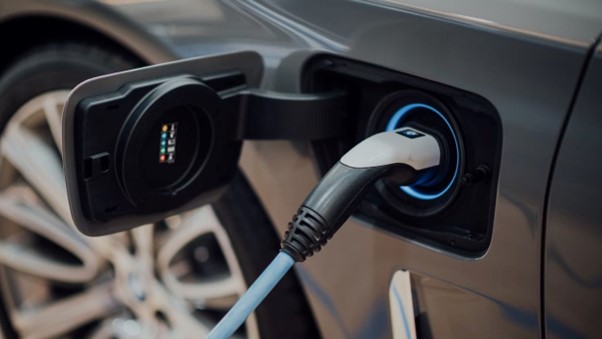Note: This is a guest post written by Jeeva Shanmugam. You can reach him on Instagram, X, or email – In a time when electric vehicles are hailed as the environmentally beneficial answer to our transportation problems, it’s important to examine the uncomfortable reality more closely.
While electric vehicles (EVs) have the potential to reduce exhaust emissions, their production and disposal come at a hidden environmental cost that is frequently overlooked.
I would like to discuss and explore the less well-known aspects of how electric vehicles could unintentionally worsen the environment in this post, illuminating the complex reality hidden beneath the EVs’ eco-friendly exterior.

Key Highlights:
- Despite their touted eco-friendliness, electric vehicles (EVs) have hidden environmental costs in their production and disposal that challenge their green image.
- The extraction of lithium for EV batteries, responsible for 5% of global production, poses environmental risks, including ecosystem damage and water contamination.
- While EVs offer long-term environmental benefits, addressing production, disposal, and tire-related pollution is vital to truly make them an eco-friendly mode of transportation.
How Electric Cars Destroy Our Environment?
When opposed to conventional gasoline-powered cars, electric vehicles (EVs) are frequently praised for their apparent environmental friendliness. A closer look suggests that EVs’ reputation as environmentally friendly might not be entirely accurate.
The environmental cost of EV manufacture is one of the main issues surrounding them. The production of the batteries that power these vehicles consumes a significant amount of energy, and the mining of the raw materials needed to make these batteries can have a negative impact on the environment.
- For instance, water contamination and ecological deterioration have been linked to the mining of lithium, a key component in EV batteries.
- Another essential battery component, cobalt, has drawn criticism for being linked to abuses of human rights, particularly in the Democratic Republic of the Congo.
- Additionally, disposing of EV batteries is a major difficulty. These batteries contain toxic elements, and if they aren’t handled carefully, they could seriously endanger the environment.

The effect of EVs on air quality is a different area of concern. Although EVs don’t produce exhaust pollutants, they do contribute to air pollution in other ways.
For instance, EVs’ tires may deteriorate more quickly than those of gasoline-powered vehicles, causing more particulate matter to be released into the atmosphere. Essentially, evaluating the overall environmental impact of EVs is a complex undertaking that depends on a wide range of variables.
The production and disposal of EVs can have a negative impact on the environment, which highlights the significance of holistic environmental management in the industry.
While they may show promise for reducing long-term environmental harm when compared to their gasoline counterparts, it is essential to recognize that the production and disposal phases of EVs can exert a negative influence on the environment, which underscores the importance of holistic environmental management in the electric vehicle industry.
How Electric Cars (EVs) Affect the Environment: Real Time Data
Higher Greenhouse Gas Emissions During Production
The production of electric automobiles leaves a significant environmental impact, according to study from the University of California, Davis.
In reality, compared to the manufacture of a typical gasoline-powered vehicle, it was discovered that the production of an electric vehicle releases between 1.2 to 2.5 times more greenhouse emissions.
This shocking discovery casts doubt on the EVs’ claimed eco-friendliness and emphasizes the importance of taking these vehicles’ complete lifecycles into account.
Environmental Effects of Lithium Mining
The mining of lithium, a key component in the batteries that power electric vehicles, raises serious environmental issues.

The extraction procedure can have detrimental effects, with production of lithium accounting for about 5% of global production. It frequently entails actions that harm delicate ecosystems and contaminate water supplies.
This shows that even though EVs strive to limit emissions when in use, their reliance on lithium can cause environmental damage throughout the extraction process.
Problems with Battery Disposal
The battery disposal for electric automobiles is a significant environmental concern. The incorrect disposal of EV batteries, which contain dangerous compounds, poses a serious threat to the environment.
These batteries can contaminate the environment if recycling and disposal procedures are not strictly followed, which could result in soil and water pollution. To reduce the repercussions of EV adoption, it is essential to address this dilemma.
Wrapping It All
The effect of EVs on the environment is a complicated subject. Long-term environmental benefits of EVs may outweigh the environmental costs of their manufacture and disposal. Before deciding whether or not to buy an EV, it’s critical to consider both its environmental advantages and disadvantages.
The following actions can be taken to lessen the environmental impact of EVs:
- The grid should be powered by renewable energy.
- When making EV batteries, use recyclable materials.
- Improve the performance of recyclable or reusable EV batteries.
- To decrease tire wear and tear, EV tires should have improved design.
These actions will help EVs become more ecologically friendly. We can make EVs a more ecologically friendly mode of transportation by doing these actions.






